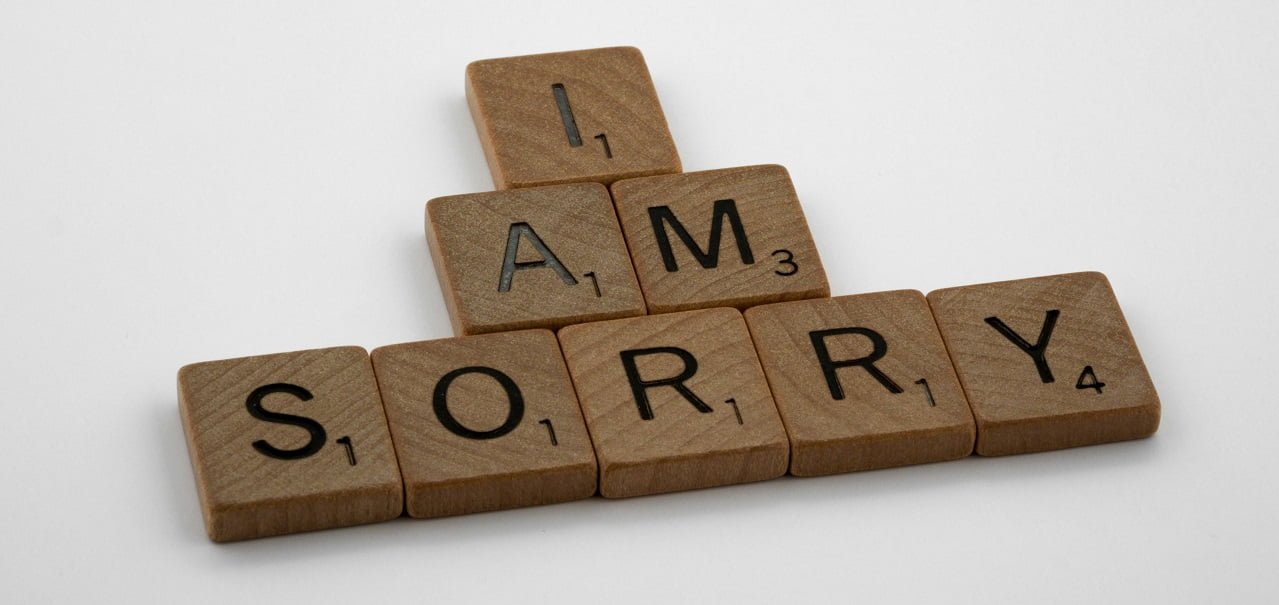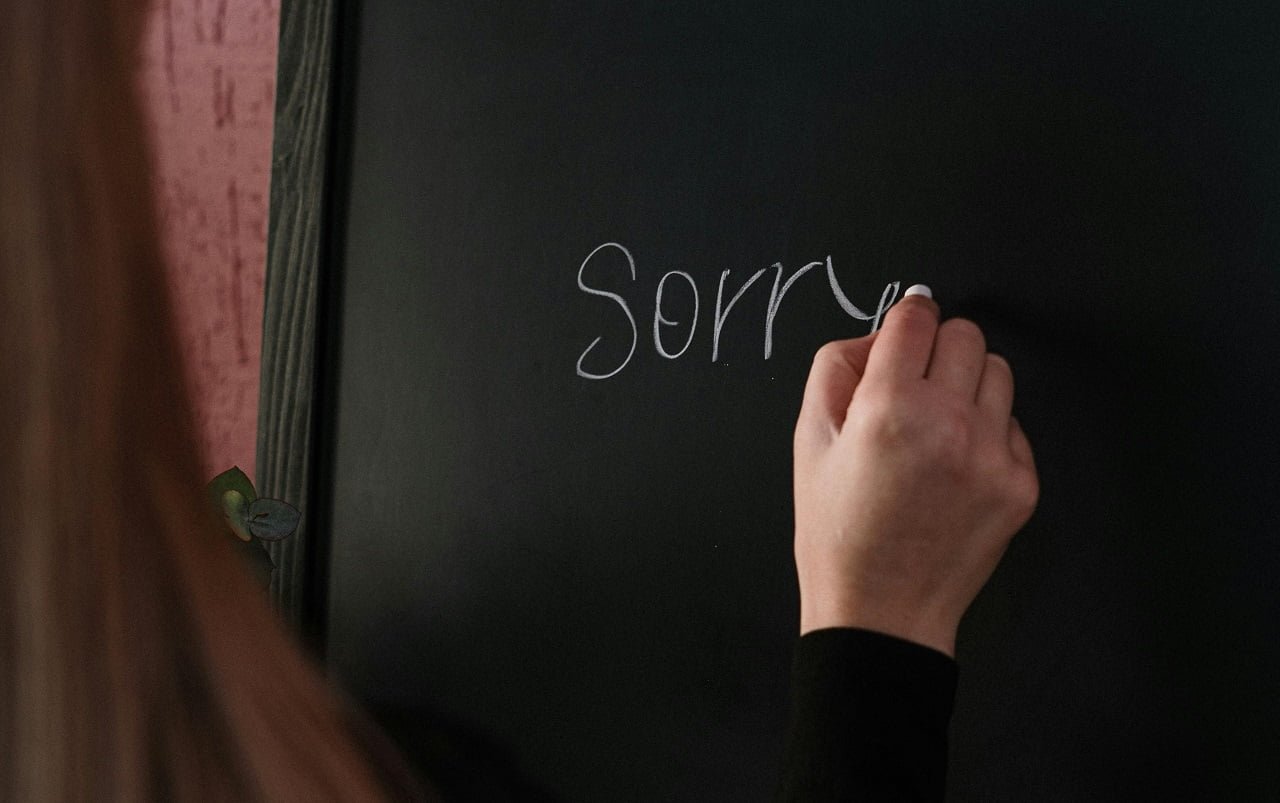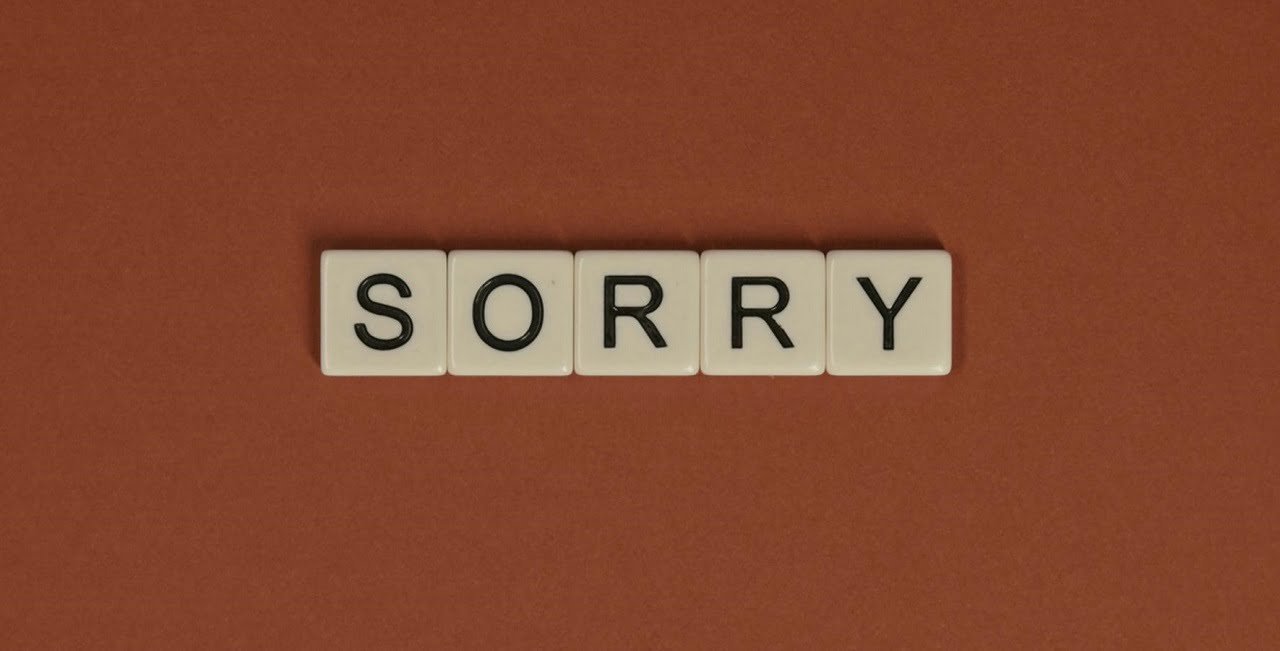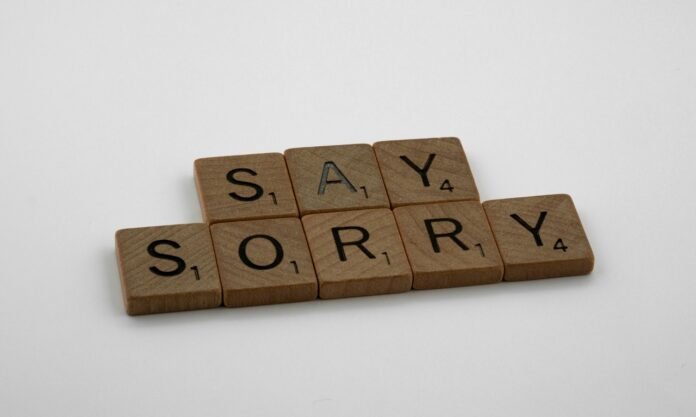Imagine a bridge connecting two individuals, sturdy yet vulnerable to the weight of misunderstandings and hurt feelings.
Apologizing in relationships can be the key to reinforcing that bridge, allowing for smoother communication and stronger connections.
As you navigate the complex terrain of human interactions, you may find yourself wondering about the significance of a simple apology. How can saying sorry impact the dynamics between you and your loved ones?
Stay tuned to discover the transformative power of sincere apologies in nurturing and fortifying relationships.
Benefits of Apologizing in Relationships
When you apologize, you’re not just saying sorry; you’re setting the tone for how you want to be treated in return.
Apologizing can be the bridge that rebuilds trust and strengthens the bond between you and your partner.
It’s a powerful way to show respect, acknowledge mistakes, and work towards healing any emotional wounds.
Apologizing Establishes Relationship Rules
Establishing clear relationship rules is a key benefit of apologizing in relationships. When you offer a sincere apology, you aren’t only taking responsibility for your actions but also setting communication boundaries within the relationship.
This act showcases your emotional intelligence and demonstrates your commitment to understanding the impact of your behavior on the other person. By apologizing, you contribute to the important shift in relationship dynamics, fostering a culture of respect and open dialogue.
Apologizing is an essential aspect of conflict resolution, as it paves the way for resolving differences with empathy and understanding. Embracing the practice of apologizing leads to personal growth and strengthens the foundation of your relationship.
Apologizing Mends Trust
Apologizing sincerely serves as a powerful tool in repairing broken trust within relationships, fostering healing and rebuilding a sense of security and connection.
Trust rebuilding is a delicate process that requires acknowledging the pain caused and taking responsibility for your actions. By apologizing, you show that you’re committed to healing wounds and repairing the relationship. This act of vulnerability acceptance can pave the way for emotional connection to flourish once again.
When you apologize, you aren’t just saying sorry; you’re actively working towards rebuilding the foundation of trust that the relationship is built upon. Remember, apologizing isn’t a sign of weakness but a courageous step towards relationship repair.
Apologizing Helps Repair Relationships
Repairing relationships is often facilitated by the act of apologizing, which allows for a genuine exchange of emotions and fosters understanding between individuals. When you use apology language that conveys sincerity and remorse, it can have a profound emotional impact on both you and the person you hurt.
Apologizing initiates the forgiveness process by acknowledging the wrongdoing and taking responsibility for your actions. Through this process, communication repair begins as you open up a dialogue to address the issues and work towards resolution.
This active engagement in apologizing not only repairs immediate conflicts but also contributes to long-term relationship healing by building trust and fostering a deeper connection based on mutual respect and understanding.
Apologizing Re-establish Dignity for Those You Hurt
When you acknowledge the hurt you’ve caused and offer a sincere apology, you provide an opportunity for those you’ve hurt to reclaim their dignity and sense of worth. Your apology has the power to heal wounds, rebuilding trust, and restoring harmony in the relationship.
By showing empathy through your apology, you acknowledge the pain you’ve caused and validate the other person’s feelings. This act of humility goes a long way in repairing connections that may have been strained.

Why Sometimes Apologizing Is Hard
Apologizing in relationships can be tough at times. Feeling guilty or inadequate might make it hard for you to say sorry.
Apologizing May Imply Guilt
Feeling the weight of admitting fault in a relationship can often make offering an apology challenging. When apologizing, it’s natural to fear that it may imply guilt, leading to hesitation. Here are some insights to contemplate:
- Apologizing misconceptions: Addressing misunderstandings about apologies can help clarify their purpose.
- Apologizing vulnerability: Acknowledging vulnerability is a strength that fosters deeper connections.
- Apologizing healing process: Apologies play an important role in the healing process of relationships.
- Apologizing emotional intelligence: Developing emotional intelligence can aid in maneuvering the complexities of apologizing.
Apologizing Can Create Feelings of Inadequacy
If you find yourself hesitant to offer an apology, it may be because acknowledging fault can sometimes stir up feelings of inadequacy in relationships. The healing process after a disagreement can be challenging, and the emotional impact of recognizing your mistakes can leave you feeling vulnerable.
Communication breakdowns often occur when apologies are avoided, impacting relationship dynamics. Self-reflection plays a vital role in understanding why saying sorry feels difficult. Recognizing these feelings of inadequacy is the first step towards growth and rebuilding trust.

When Apologizing Is a Good Idea
Hey there, sometimes apologizing can be tough but it’s an important step in maintaining healthy relationships.
If you find yourself reflecting on behavior that you know was wrong, unfair, or hurtful, it might be a good time to offer a sincere apology.
Maybe you’ve broken a promise, acted disrespectfully, hurt someone’s feelings, or unfairly judged them – these are all situations where saying sorry can make a real difference.
You Engaged in Behavior You Knew Was Wrong, Unfair, or Hurtful
Reflect on the times when you engaged in behavior you knew was wrong, unfair, or hurtful, as acknowledging these actions is an important step towards offering a genuine apology in relationships. It takes courage to confront your mistakes and take responsibility for them.
When you recognize your wrongdoings, you pave the way for healing wounds, rebuilding trust, repairing damage, reconnecting hearts, and restoring harmony in your relationships. Here are some ways to navigate this process:
- Acknowledge your actions: Admitting to your mistakes shows humility and a willingness to make amends.
- Express genuine remorse: Communicate your regret sincerely to demonstrate your understanding of the hurt caused.
- Listen actively: Provide space for the other person to share their feelings and perspective.
- Commit to change: Outline steps you’ll take to avoid repeating the hurtful behavior.
You Failed to Keep a Promise
When you realize that you failed to keep a promise, it becomes important to acknowledge the impact of this breach on the trust and expectations within your relationship. Breaking a promise can strain the foundation of trust and belief your relationship is built upon.
To mend this rupture, focus on rebuilding trust by honoring commitments and communicating openly about what led to the broken promise. Restoring faith requires consistent actions that align with your words, proving your reliability. Repairing bonds involves showing genuine remorse and taking steps to rectify the situation.
Regaining respect will come from demonstrating accountability and learning from your mistake. By doing so, you pave the way for reconnecting emotionally and fostering a stronger, more resilient relationship.
You Behaved in a Disrespectful Way
Addressing disrespectful behavior in a relationship requires genuine reflection and a willingness to take responsibility for your actions. It’s important to acknowledge the impact of your behavior and work towards rebuilding trust.
Here are some key points to keep in mind:
- Communication strategies: Open and honest communication can help address the root cause of the disrespectful behavior.
- Rebuilding trust: Consistent actions that demonstrate respect and understanding are essential in rebuilding trust.
- Emotional intelligence: Developing emotional intelligence can help you better understand your triggers and manage your reactions in a respectful manner.
- Conflict resolution: Learning healthy ways to resolve conflicts can prevent disrespectful behavior from escalating and aid in relationship repair.
You Hurt or Insulted Someone
If you’ve caused harm or offense to someone in your relationship, acknowledging your actions and offering a sincere apology is an important step in repairing the bond between you.
Effective communication plays a significant role in expressing your genuine remorse and understanding the impact of your words or actions. It’s important to initiate the healing process by showing empathy and actively listening to the hurt party’s feelings.
By apologizing, you demonstrate your commitment to rebuilding trust and repairing the damage caused. Remember, a heartfelt apology can pave the way for open discussions and a deeper connection with your partner.
Take ownership of your mistakes, express your regrets, and work towards fostering a healthier and more respectful relationship.
You Judged Someone Too Harshly or Unfairly
Judging someone excessively or unfairly can strain relationships and create feelings of resentment and distance. It’s important to acknowledge when you’ve made this mistake and take steps to repair the damage caused. By apologizing sincerely and working towards understanding and growth, you can begin the process of rebuilding trust and restoring connection in the relationship.
Here are some key steps to ponder:
- Rebuilding trust: Be patient and consistent in your actions to show that you’re committed to change.
- Overcoming biases: Challenge your preconceived notions and be open to seeing things from the other person’s perspective.
- Healing wounds: Address the hurt you caused and express genuine remorse for your actions.
- Restoring connection: Take the initiative to reconnect and communicate openly to bridge the gap that was created.

What to Avoid When Apologizing
When apologizing in relationships, it’s critical to avoid making excuses or shifting blame onto the other person. Effective communication is key in this process. Instead of deflecting responsibility, try to focus on expressing genuine remorse for your actions.
It’s crucial to show emotional intelligence by acknowledging the impact of your behavior on the other person. Avoid downplaying their feelings or dismissing their perspective. Conflict resolution requires humility and a willingness to listen openly to the other person’s point of view.
Remember, the goal of apologizing isn’t just to smooth things over but to facilitate relationship repair and foster personal growth for both parties involved. By avoiding excuses and taking ownership of your actions, you demonstrate maturity and a commitment to understanding and respecting the feelings of the person you’ve hurt.
This approach can lead to more meaningful and authentic connections in your relationships.
Tips for Apologizing
When it comes to apologizing in relationships, acknowledging their feelings, saying a sincere sorry, and keeping your apology simple can make a big difference.
Taking responsibility for your actions shows maturity and respect for the other person’s feelings.
Acknowledge Their Feelings
Showing genuine empathy by acknowledging their feelings is an essential step when offering an apology in a relationship. It demonstrates that you understand the impact of your actions and care about how they feel.
To acknowledge their feelings effectively, consider the following:
- Listen actively: Pay full attention to their words and non-verbal cues.
- Validate their emotions: Let them know that their feelings are valid and understandable.
- Communicate compassionately: Use a gentle tone and comforting language.
- Show understanding: Reflect back what they’re feeling to show you comprehend their perspective.
Say You’re Sorry
To offer a heartfelt apology in a relationship, it’s important to express genuine remorse and take responsibility for your actions. When apologizing sincerely, acknowledge the hurt you caused and show empathy towards the other person’s feelings.
Repairing the damage done by your actions involves more than just saying sorry; it requires understanding the impact of your behavior and actively working to make amends. By expressing remorse and showing that you understand the consequences of your actions, you can start to rebuild trust in the relationship.
Keep It Simple
For a more effective apology, remember to keep it simple and straightforward. Effective communication is key in rebuilding trust and understanding in a relationship. When apologizing, consider the impact of your words on the other person’s feelings, showing emotional intelligence.
Conflict resolution is easier when apologies are sincere and focused on the issue at hand. Remember, relationship dynamics are delicate, and simplicity in your apology can prevent misunderstandings and further conflicts.
Here are some tips for keeping your apologies simple and impactful:
- Be concise and to the point.
- Use clear and direct language.
- Avoid bringing up past grievances.
- Focus on expressing genuine remorse and understanding.
Take Responsibility for Your Actions
Taking responsibility for your actions is essential in offering a sincere and effective apology in a relationship. Acknowledging your mistakes is the first step in the healing process and demonstrates emotional maturity.
By taking ownership of your actions, you show personal growth and a willingness to make amends. This approach is key to building trust and repairing relationships. Remember, a genuine apology goes beyond just saying sorry; it involves understanding the impact of your actions on the other person.
Embrace this opportunity for self-reflection and growth. By accepting responsibility, you pave the way for a deeper connection and mutual understanding with your partner. Trust the process, and let your actions speak louder than words in the journey towards relationship repair.

Frequently Asked Questions
How Can Cultural Differences Impact the Way Apologies Are Given and Received in Relationships?
Cultural differences impact apologies in relationships through communication barriers, misinterpretation risks, emotional expressions, relationship dynamics, and conflict resolution. Understanding these influences can help navigate diverse perspectives, foster empathy, and strengthen connections.
Is It Ever Too Late to Apologize for Something That Happened in the Past?
When it comes to apologies, timing is key. It’s never too late to seek forgiveness. By rebuilding through open communication, you pave the way for healing, closure, and growth. Reflecting, accepting, and moving on are essential steps in strengthening relationships.
Can Apologizing Too Frequently in a Relationship Lead to Enabling or Unhealthy Dynamics?
Sometimes, frequent apologies can create a pattern of enabling or unhealthy dynamics in a relationship. It’s important to strike a balance in communication, assert boundaries, and navigate healthy conflict to avoid this pitfall.
Are There Situations Where It’s Better to Show Remorse Through Actions Rather Than Words?
In certain situations, showing remorse through actions can be more powerful than mere words. Actions speak volumes, especially when timed right, showing genuine remorse for repairs in relationships. Remember, words matter, but deeds often resonate deeper.
How Can Someone Rebuild Trust in a Relationship After a Significant Apology Has Been Made?
To rebuild trust after a significant apology, focus on open communication, understanding each other’s emotions, and developing empathy. These strategies foster emotional healing and pave the way for relationship growth, strengthening the bond between you.
Conclusion
Just like watering a plant helps it grow, apologizing in relationships can nurture and strengthen the bond between two people.
It’s like repairing a bridge that may have been damaged, allowing for smoother communication and understanding.
Remember, a sincere apology is like a healing balm for the heart, bringing about forgiveness and reconciliation.
So, don’t be afraid to say sorry when needed, as it can truly work wonders in maintaining healthy relationships.





